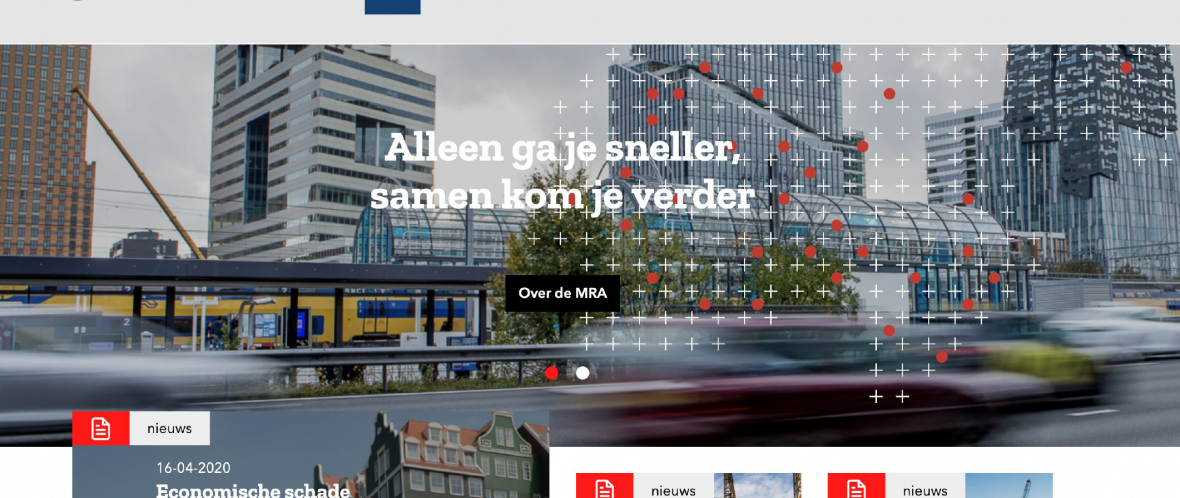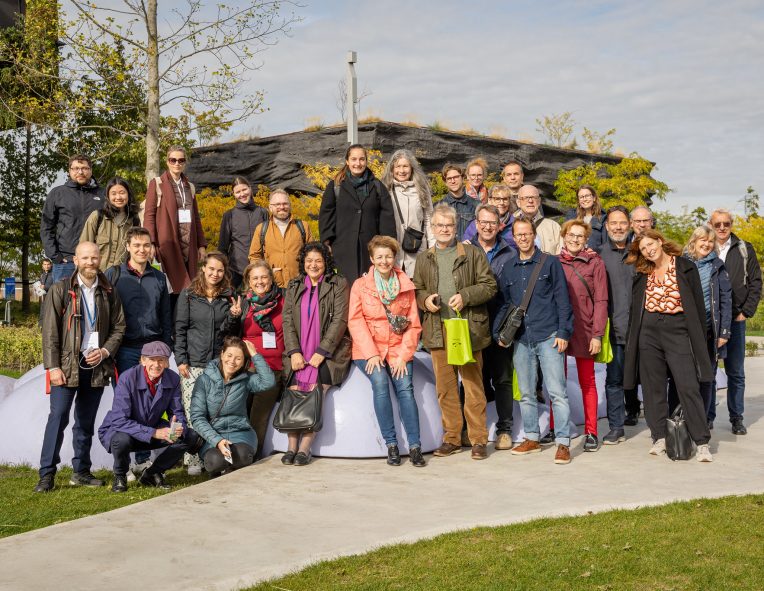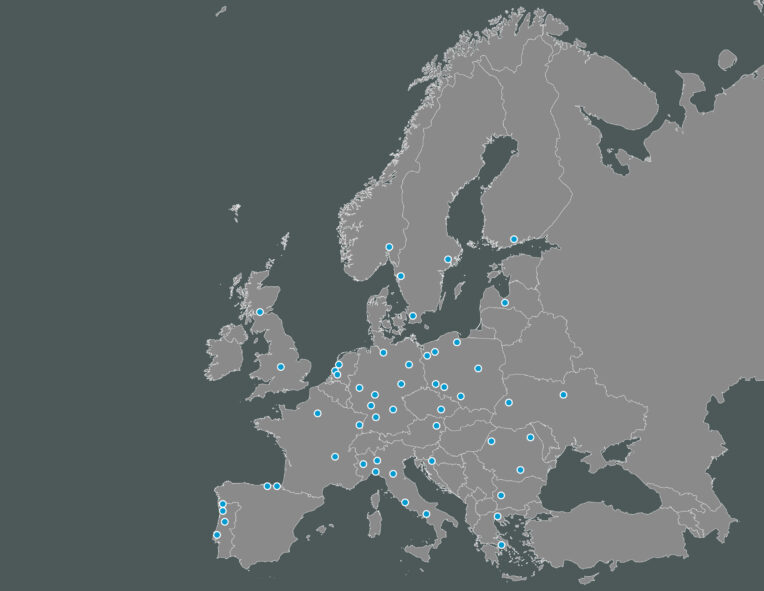Five METREX Expert Groups and Network Groups met online in March in lieu of meetings planned for the Lisbon Conference.
In light of the global Covid-19 lock-down, which forced the cancellation of the METREX Lisbon Conference, a number of Expert and Network Groups responded by holding their meetings online. Meetings took place for the Nordic Network and SURE-Eurodelta Network, as well as Expert Groups for Metropolitan Governance, Metropolitan Landscapes and From Roads to Streets. Each of the groups has presented a short summary of their meeting.
Nordic Network
The meeting’s agenda was to discuss a suggested name change from Nordic Network to Nordic-Baltic Network and to talk about new ways of working and organising our work. A preliminary questionnaire on these topics was circulated prior to the meeting for all members to complete. The Network’s shared opinion was that the name Nordic-Baltic Network better reflects who we are and emphasises the importance of working together as one region as well as communicates to others what we represent. Thus, from now on, the Network shall meet under our new name!
We discussed which direction we want to take the Network and ways of working in the future. It was felt that it is important to retain, as a strong element, the Network’s informal knowledge exchange opportunities, open discussion and the tradition of updating news from our regions in each meeting. It was also suggested, that we explore opportunities for theme-based work and policy brief writing as ways of rapidly creating a “shared impact” or united front around a specific topic. These ideas will be further developed over the next few Network meetings.
It was delightful to hear how keen all members are to contribute to and develop the Network – we have an amazing pool of professionals to work with! This meeting proved that we are able to work virtually, using digital tools and leading with information! We are already looking forward to our next Nordic-Baltic Network meeting in June.
Update provided by Salla Ahokas, City of Helsinki
SURE-Eurodelta Network Group
The SURE-Eurodelta group held a meeting with around 20 participants representing Paris Region, Metropole Lille, Perspective Brussels, City of Antwerp, Region Cologne/Bonn, Business Metropole Ruhr, City Amsterdam, City of Rotterdam, City of the Hague, Province South-Holland, Association Deltametropolis, and Holland Metropole.
The meeting included two presentations around which discussion and views were sought. The first was about the Urbanization Strategy in Metropolitan Area Amsterdam by Martijn Veenstra, which covered the governance set up in the Amsterdam Metropolitan Area, as well as work that the group is doing to apply design thinking to imagine the future of the region.
Alfredo Corbalan from Perspective Brussels presented on the Urbanization Strategy in Brussels Capital Region, providing an overview of the region and its challenges, as well as priorities for the future which include housing, quality of life, the economy and mobility.
A ‘Visual Memory’ of the meeting was captured by the team at Den Haag, which can be accesses by METREX members on the SURE-Eurodelta page.
Metropolitan Governance Expert Group
Adriana May, coordinator of the Group, opened the meeting and reminded all participants that governance is a relevant aspect for metropolitan cities, because different institutional levels need to coordinate and cooperate with each other, and with the relevant stakeholders. The Group is specifically focusing on: (i) institutional cooperation, (ii) public-private partnership, (iii) innovation, (iv) use of European funds.
The overall goal of the Group is to learn from the experiences shared and to propose recommendations for the policy makers. This is going to be achieved by ongoing activity of sharing experiences and best practices as well as by a collective and mutual analysis of such experiences, of the problems encountered and of the emerging opportunities. By the end of the year the aim of the Group will be to collect a written description of the experiences, on a common format, and to elaborate policy recommendations in the form of shareable material.
The representatives of the metropolitan cities of (in alphabetical order) Barcelona, Hamburg, Lisbon, Marseille, Milan, Munich, Turin and Wroclaw took their turn to speak. Each representative described how the city they work for is organized as well as its territorial characteristics, institutional and administrative framework, essential financial issues, available tools and models of governance, cultural and social identity features.
The Group converged on the conclusion that there is no unique model for managing metropolitan areas. In fact, governance is influenced by heterogeneous geographical contexts, spatial dimensions and population and should therefore be compatible with them. Some metropolitan bodies are established via a governmental mandate, others are voluntarily constituted. The administrative bodies can be either directly or indirectly elected or appointed. Some have been established many years ago (i.e. 10 years or more), others more recently, some draw on the economic resources of the central Government, some have their own local taxes and others support themselves with resources collected by the affiliated institutions. Many metropolitan cities are developing European projects in order to finance new initiatives. While almost all of them have responsibilities on territorial planning issues, only some do perform functions related to culture, tourism, social services and ICT.
The different combination of the above-mentioned aspects leads each territory to define different priorities and specific objectives, but these are always aimed at increasing the quality of life of the citizens.
All the speakers confirmed a strong interest in cooperating among the different metropolitan cities through the creation of a virtual community for the exchange of best practices and experiences, written contributions, bi-monthly videocall meetings and the final drafting of a document presenting the features of each metropolitan area with some general policy recommendations.
The next proposed meeting will be focused on how the European metropolitan areas are redefining their policies in order to face the economic and social consequences of the ongoing health emergency.
Update provided by Enrico dall’Oglio, Regione Lombardia
From Roads to Streets
This was a kick-off meeting for the Roads to Streets Expert Group, which is being led by Paul Lecroart from L’Institut Paris Region. The group is a collaboration with Eurocities project ‘Urban Regeneration on the City Fringe’, which has been established to learn more about the transformation of roads to urban streets as a key measure to transform the urban fringe.
This meeting was an opportunity to gather the interested parties and plot a course for the next two years of the project. The key outcome of the meeting was a questionnaire to gather information on case studies of successful transformation of roads to streets, as a base upon which to analyse the factors behind success.
Metropolitan Landscapes
Like From Roads to Streets, this too was a kick-off meeting to bring together participants to outline the context and begin to set an agenda. The aim of this group is to explore the characteristics of rural areas and ways to value them as an important part of the metropolitan region. From out of the kick-off meeting emerged a survey through which participants will share case studies in order to benchmark elements such as governance models and different approaches to tackling challenges.
This Expert Group is also collaborating with the German Federal Ministry of Education and Research (BMBF) funded project “Stadt Land Plus” in preparing the URP2020 international conference in Leipzig on Sustainable & Resilient Urban-Rural Partnerships – urp2020.eu. This conference will be in November 2020, and will contribute to the German EU Presidency 2020. The outcomes of the Expert Group meetings will feed into this conference and experts will be able to join the URP2020 conference to learn from other examples.
Find out more about METREX Activities.



